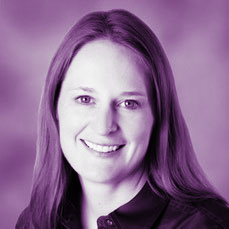Episode 118: Fertility 101: Recurrent Pregnancy Loss (RPL)
The Fertility 101 Series, because there’s no shortage of daunting terms to keep your mind running, is a quick and dirty breakdown on a specific topic with insights from a fertility expert.
In today’s episode, we discuss what you need to know about Recurrent Pregnancy Loss (RPL). Dr. Lora Shahine of Pacific Northwest Fertility answers common questions associated with RPL, the different treatment options, and reminds us to not blame ourselves during this overwhelming situation.
Guest: Lora Shahine, Pacific Northwest Fertility
Host: Dan Bulger
For more information, visit Progyny’s Podcast page and Progyny’s Education page for more resources.
Be sure to follow us on Instagram, @ThisisInfertilityPodcast and use the #ThisisInfertility.
Have a question, comment, or want to share your story? Email us at thisisinfertility@progyny.com.
Here are some highlights from this episode:
What Makes up a Recurrent Pregnancy Loss Evaluation?
3:49 – 5:58
Dan Bulger: Let’s talk about testing. What makes up a recurrent pregnancy loss evaluation?
Dr. Lora Shahine: The philosophy at the center is to do a thorough evaluation that’s evidence based. We’re looking for anything that we can control in the couple that might put them at a higher risk of miscarriage, such as anatomic issues within the uterus. We do look at carrier types and both people that are conceiving, via blood test, as well as screening for antiphospholipid syndrome, which is the one immune issue that has been shown to be associated with recurrent miscarriage. We also look at some hormonal levels, thyroid control, hemoglobin A1C as a way to screen for diabetes, and prolactin levels.
I do warn people before we start the evaluation, that the majority of the time we’re not going to find an answer. It’s very important to discuss that with people because that’s what they’re there for — they come to see me because they want to know exactly why they’re having miscarriages. Because if there’s a problem, they can fix, they don’t have to feel this pain again. And so it’s very important that I explained to them, what we could find and what we will do if we do find something. But the most common cause of first trimester miscarriage is a chromosomal imbalance or a genetic issue within the embryo. And so each pregnancy is a new opportunity. And it depends on that particular egg and that particular sperm. But if the chromosomes are imbalanced, fertilization can happen, implantation can happen, but at some point, the pregnancy is going to stop developing. And that will result in miscarriage. And I’m usually seeing patients after they’ve had a few miscarriages, so we can’t go back in time and test the miscarriages. So we still move forward and do a thorough evaluation. But that’s the reason why I don’t always find an answer for each couple.
You’re Not Broken
12:54 – 14:49
Dan Bulger: Pregnancy loss is challenging, and recurrent pregnancy loss can feel overwhelming. So it’s tempting to fall into the trap of self-blame, taking something that’s natural and simply not easily controlled, and turning it into something to be ashamed of. And that’s why Dr. Shahine used the language she did when titling her book, “Not broken.”
Dr. Lora Shahine: So I’ve been caring for women with recurrent miscarriage for about 15 years. And time and time again, women come to me feeling broken, they feel like their body is failing them, they are so ready to complete their family and assume that this you know, embryo and this pregnancy is perfect. And it’s got to be something that they did wrong. And it’s in a way it’s a coping mechanism. Because if they can find an answer, you know, whether it’s a test that I can do for them and say your thyroids off, and I’m going to give you a pill to fix it. Or if I can tell them, oh, it’s because you were too stressed out or a glass of wine before you knew you were pregnant. If there’s something that they can control, then they feel more confident moving forward, because then they can change that factor and just try to avoid the pain of another miscarriage.
And so I try to really help women not feel broken and realize that the most common cause of miscarriage is that embryo and to focus on the positive that they are conceiving. I mean, think about all the hurdles that they’re overcoming – fertilization is happening, the eggs and sperm like each other, implantation is happening. And at some point, just that embryo doesn’t have the right genetics to continue to go forward. And on the flip side, their body is working. It’s not broken. It’s realizing that this isn’t going to be a healthy pregnancy. And I’m not diminishing what they’re going through, and it’s still extremely painful, but I just really want women to get away from feeling that it’s their fault.

Host
Dan has been in the healthcare industry for the last six years as a multimedia content producer. Better known as ‘Video Dan’ he as interviewed numerous doctors, patients and other experts in the world of fertility. He’s also the producer for this podcast, This is Infertility. On a personal note Dan’s parents started fostering kids when he was four years old, and he considers himself a proud older brother to over 100 foster children.

Guest
Dr. Shahine completed her fellowship in reproductive endocrinology and infertility at Stanford University where she served as a Clinical Instructor in the Department of Obstetrics and Gynecology, contributed several research publications in fertility and recurrent miscarriage, and trained in one of the few Centers for Recurrent Pregnancy Loss in the United States.
She completed her residency in obstetrics and gynecology at the University of California in San Francisco where she received awards for teaching and the faculty award for outstanding research in women’s health.
Whether it’s through research, writing, or an active social media presence, Dr. Shahine is dedicated to teaching, advocating for patient care, and shattering stigma around fertility and miscarriage.
As a clinical assistant professor at the University of Washington, Dr. Shahine continues to teach the next generation of women’s health providers and contribute to the field with research.
Current and past positions include President of the Early Pregnancy Special Interest Group of the American Society of Reproductive Medicine, Founder of the Social Media Special Interest Group at American Society of Reproductive Medicine, Board Member of the Seattle Gynecology Society.
An accomplished author, she has published over 50 peer-reviewed research projects, numerous articles, and several books including Not Broken: An Approachable Guide to Miscarriage and Recurrent Pregnancy Loss and Planting the Seeds of Pregnancy: An Integrative Approach to Fertility Care.
Dr. Shahine lives in Seattle with her husband and children and enjoys travel, skiing, camping, great food and time spent with friends and family.



